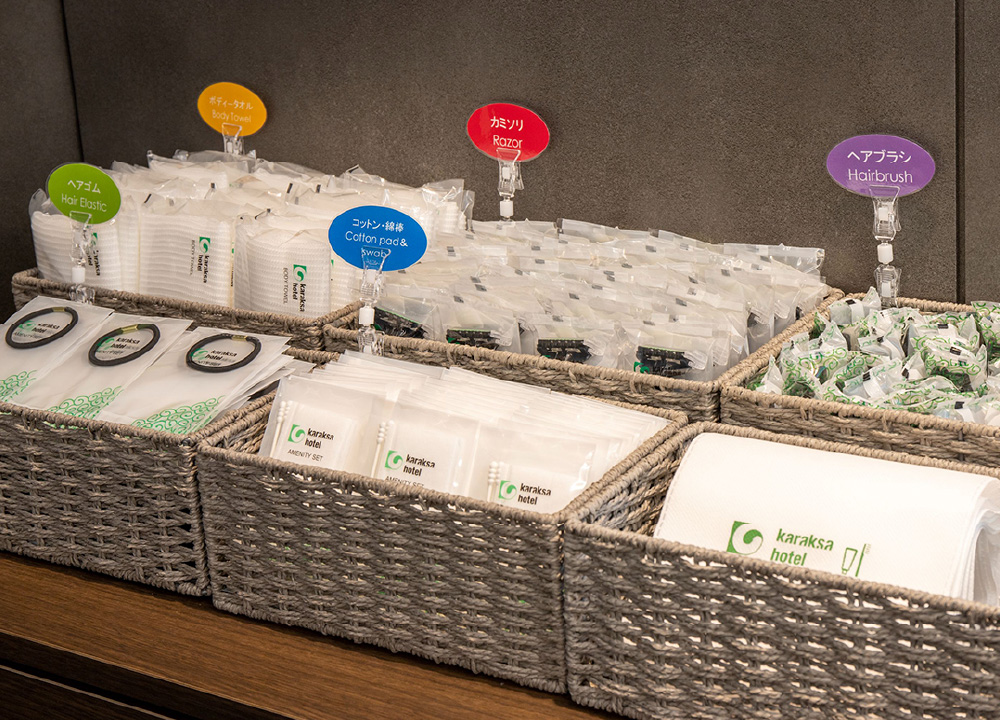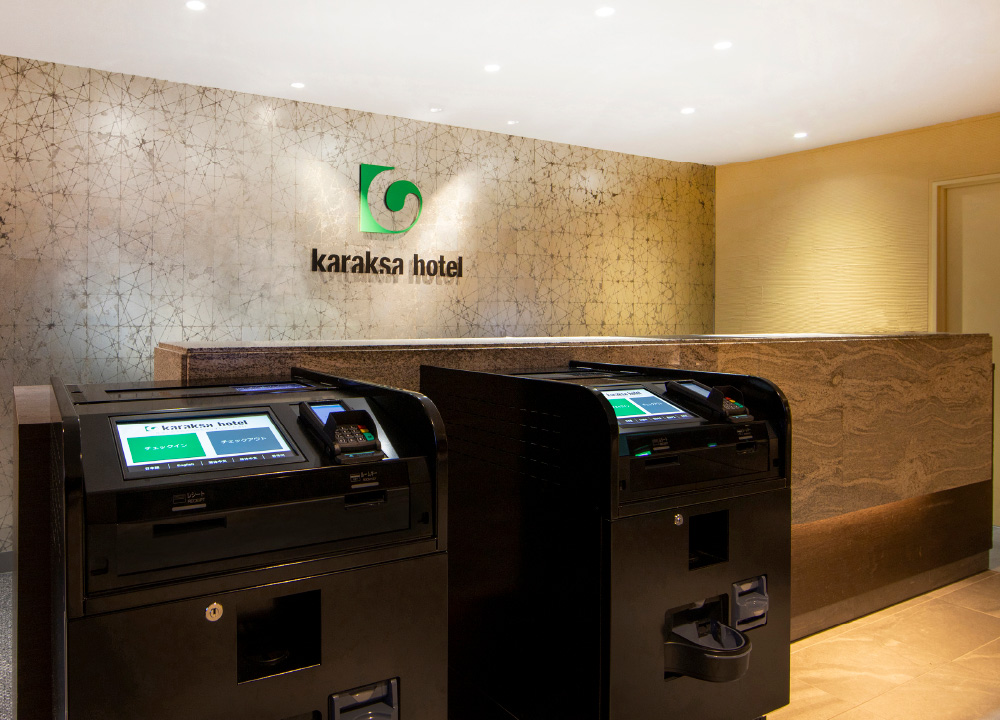As a hotel that consumes energy for water, light and heat, as well as amenities, supplies and food, we strive to be environmentally conscious.
We are doing everything possible daily, knowing that these small efforts will add up.

We work to clean guest rooms in an environmentally conscious manner, particularly when guests stay for consecutive nights. By changing linens and cleaning bathrooms and sinks only as needed, we conserve water and reduce pollution from detergents, doing our part to reduce global environmental burden.

In accordance with the Plastic Resource Circulation Act, we are striving to reduce and recycle the plastics we use.
Daily necessities like cotton sets and washcloth are provided at an amenity bar in the lobby, allowing guests to select only what they need. (Excluding Tokyo Ginza) In addition, shampoo, body wash and other toiletries are provided in pump bottles as opposed to single-use packets.
We collect plastic (PET) mineral water bottles from guest rooms for recycling.

Every day for breakfast, karaksa hotel staff coordinate to prepare the appropriate amount of food in accordance with reservation numbers and data on food consumption averages. We also carefully manage inventory and product ordering through a dedicated system to minimize food loss.
Some of our hotels have installed vending machines that allow guests to purchase food items that have become difficult to market at 30 to 50% off, helping to reduce food waste.

We have introduced automated check-in machines to manage guest registration information digitally upon check-in. (Excluding Tokyo Ginza) We also work to conserve resources by using digital signage and providing scannable QR codes to provide hotel information to guests via our website.
Nearly all reports and forms formerly kept in back offices have also been digitized. Moving forward, we will embrace paperless operations further by connecting our cleaning and linen supply services to our core management system.
Going paperless not only reduces waste and time spent filing and managing paper documents, it also reduces energy consumption and CO2 emissions from transporting paper documents to warehouses.